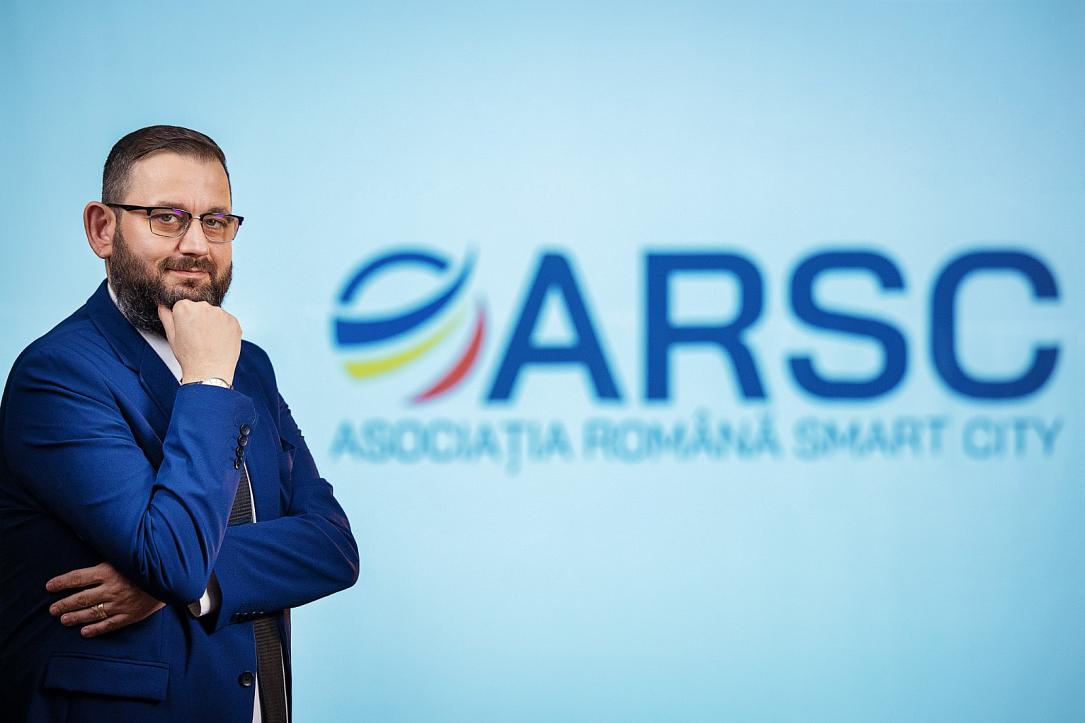Romania has all the resources to become the country with the most "smart" localities in the region



"Romania has all the resources to become the most representative example of the smart city concept in Eastern Europe. Forecasts for 2024 in the field of smart cities in Romania show that we are in a period of growth and innovation, with a focus on sustainable development and digitalization of public services. Romania is going through the best period in terms of urban development - the mix of funding sources, access to technology, and local expertise alongside civic pressure constitutes the recipe for accelerating creative-intelligent projects. And in the context of an election year, these developments can be even more pronounced, as technological and ecological initiatives become central points in political agendas," says Eduard Dumitrașcu, president of ARSC.
Romania is consolidating its position on the smart city regional map, with a multidimensional approach focused on innovation, sustainability, and collaboration. Given the current dynamics of urban development and technology, there are several main directions through which Romania can significantly advance in this field:
1. Accelerating investments in technology
To consolidate its position, Romania needs to prioritize investments in emerging technologies that can bring significant transformations in city management. This includes technologies such as IoT (Internet of Things), AI (Artificial Intelligence), Big Data, and 5G. Investments should focus on modernizing existing infrastructure and implementing new solutions to make cities more connected, efficient, and responsive to citizens' needs.
2. Strategic partnerships between the state and private sector
Partnerships between the public and private sectors are essential for smart city development. By collaborating with technology companies, universities, and research organizations, local administrations can access the expertise, technologies, and funding needed for ambitious projects. These partnerships can take the form of pilot projects that, if successful, can be scaled nationally or regionally.
3. Integrating innovative solutions into infrastructure is crucial for transforming cities into smart communities. This involves:
Digitization will continue to be an important driver for improving the quality of life in Romania. Technological solutions that facilitate access to healthcare, education, transportation, and public administration services will become more accessible and efficient. And the election year can bring significant opportunities for advancing the smart city agenda.
"In this election year, I expect political parties to integrate concrete measures into their programs to accelerate digitization and address specific challenges, such as digital inequalities and cybersecurity. We may see candidates' commitments to innovative projects promoting digital transformation and sustainability. These promises must be followed by concrete actions, with a focus on collaboration between government, the private sector, communities, and non-governmental organizations to ensure the efficient implementation of smart city initiatives. All projects should be correlated with funding sources agendas - this year hundreds of funding calls will be launched that can be accessed by our municipalities and county councils. In this regard, ARSC will launch in the coming period the Smart Voter's Guide - a manual about what is important to us, to our communities, and, especially, what to pay attention to when choosing our mayors," says Eduard Dumitrașcu, president of ARSC.
With important examples of smart communities, Romania can become a benchmark in the region regarding the concept of "smart village," which is gaining more ground locally.
"This evolution will be supported by national and European funding programs, as well as local initiatives aimed at improving access to high-speed internet, digitizing administrative services, and promoting smart agriculture. These changes will reduce the digital and economic gap between urban and rural areas. Certainly, taking advantage of the development dynamics and access to resources, most initiatives will be in the peri-urban environment," explains Eduard Dumitrașcu, president of ARSC.
For Romanians to live in a smart city or a smart village, pollution needs to be reduced, and the environment needs to be increasingly protected. As part of this objective, ARSC has launched the Green Exchange project, through which companies can calculate their impact on the environment and, implicitly, can offset the effects of the CO2 footprint by purchasing carbon credits. With these, firms can invest in green projects, such as reforestation projects, biodiversity conservation, or the construction of carbon capture and storage (CCS) facilities, for a cleaner environment.
ARSC aims to create a future where balance with nature becomes a standard, not just an ideal. The objective is to find ways of coexistence between economic development and environmental protection in a harmonious way, promoting innovation and ecological actions as the main engines of change. The platform's mission is to initiate real and measurable changes, transforming ecological commitments into concrete actions.
In conclusion, 2024 promises to be a year of consolidation and innovation for the smart city concept in Romania, with the potential to bring significant changes in how technology is used to meet citizens' needs and promote sustainable urban development. It is essential for all stakeholders involved to collaborate closely to ensure that the benefits of digitization and innovation are accessible to all Romanians.
The Romanian Association for Smart City (ARSC) is a non-governmental organization established in 2016 to support the development of smart cities in Romania. ARSC, along with over 350 members and partners, encourages innovation, digitization, and new technologies as a means of transforming local communities into smart and sustainable cities, developing efficient and sustainable solutions for cities and communities in Romania.
*This is a Press release.